European Super League move 'would lead to war'
- Published
Super League 'would lead to war'
Any move to form a breakaway super league involving Europe's top sides would lead to "war" between the clubs and Uefa, says a leading presidential candidate for the governing body.
Aleksander Ceferin, who heads the Slovenian FA and holds more than 20 pledges of support for his presidential candidacy, insists any closed super league is "out of the question".
Talks involving leading European clubs and Uefa have been ongoing for a number of months, with a Champions League format revamp under discussion.
A decision on potential changes could be announced as early as Friday.
Such reforms could end threats by some elite clubs to break away and form a super league before 2021.
The Premier League's new £9bn TV deal is one of the main reasons why European sides are so keen to see change.
Real Madrid took home £81m for winning the competition last season. But the side finishing last in the Premier League this season is guaranteed about £97m.
With such a financial gulf beginning to emerge across the continent, Uefa is under pressure to deliver a significant uplift in revenues for Champions League TV rights when negotiations begin later this year.
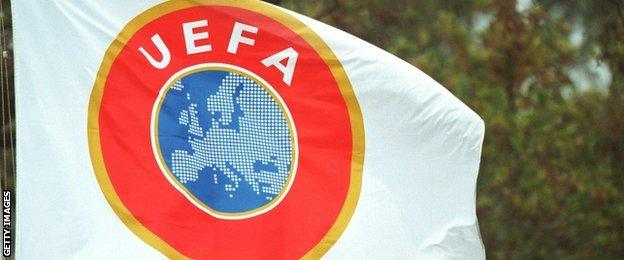
"Uefa at this moment needs fresh blood, new ideas, new faces." - Alexander Ceferin
Sports companies in the US and China have proposed a breakaway league but Ceferin insists European football will remain united.
"One of the main issues awaiting the next Uefa president is relations to the big clubs," he said.
"My firm opinion is that some kind of closed super league with just a few clubs in, without the possibility for the others to enter, is out of the question. It will mean a kind of war between Uefa and the clubs.
"If they want more revenues we should work on it. It is possible. The Champions League is the best sports product in the world, for sure. But it doesn't generate the most money. So we should include them [the clubs] more."
Ceferin is one of three candidates standing in next month's Uefa presidential election, called after Michel Platini was forced to step down after being banned by Fifa's ethics committee in relation to a payment he received from former Fifa president Sepp Blatter.
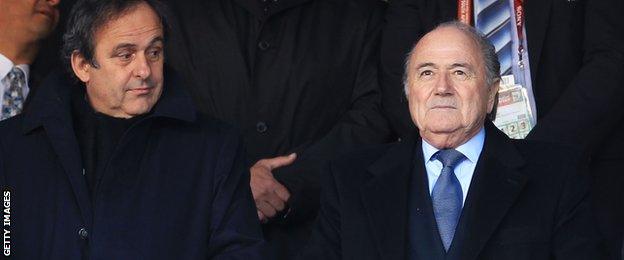
Sepp Blatter and Michel Platini were suspended for eight years from all football-related activities following an ethics investigation
Michael van Praag of the Netherlands and Angel Maria Villar of Spain are also seeking to win the ballot which will be held in Athens on 14 September.
But Ceferin is increasingly confident his coalition of support is gaining momentum.
As he prepares for a meeting in Glasgow on Thursday with officials from the English, Scottish, Welsh and Northern Irish football associations, Ceferin insists Uefa must now seek a new direction.
"We can work on transparency and inclusion. Before, with Michel Platini, we had a charismatic leader. Now, if I come there, we will have a team leader.
"I think Uefa has, in principle, a good administration. We have great experts in the FAs which were not included in the decision-making. So I think that should change.
And after the controversial years of Blatter and Platini, he thinks football is ready for a new face despite his relative inexperience.
"Of course, we should work together with some people who are experienced but to try to say only the one who is there for 30 years could lead Uefa? It's quite silly. Nobody would believe that.
"If anything, I am independent. Everybody who knows me knows that. Maybe there's a time for a person whose not a member of the football establishment to come.
"Uefa at this moment needs fresh blood, new ideas, new faces."
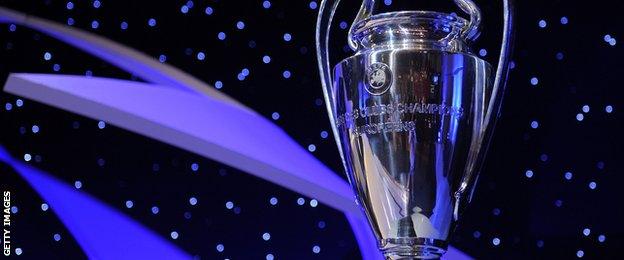
A decision on potential changes to the Champions League format could be announced on Friday
Following Euro 2016, which was marred by violence, Ceferin also believes Uefa must now improve how it deals with discrimination and security issues.
A small number of England, France and Russia supporters were involved in the most serious incidents of violence during the tournament.
Uefa had threatened to disqualify England and Russia from the tournament following violent scenes during the 1-1 draw in Marseille.
"It's never enough, you never do enough. And Uefa doesn't do enough.
"I think we should create a department within Uefa - let's call it 'Protection of the game' - where we will deal with anti-doping, safety and security, fight against match-fixing and, of course, racism.
"We've seen the situation now at the Euros and obviously the security situation in Europe is not getting better, it's getting worse every day.
"We should be pro-active, we should work on it because if a person dies, even a bigger catastrophe happens it's a disaster for football, for Uefa, for Europe.
- Published23 August 2016
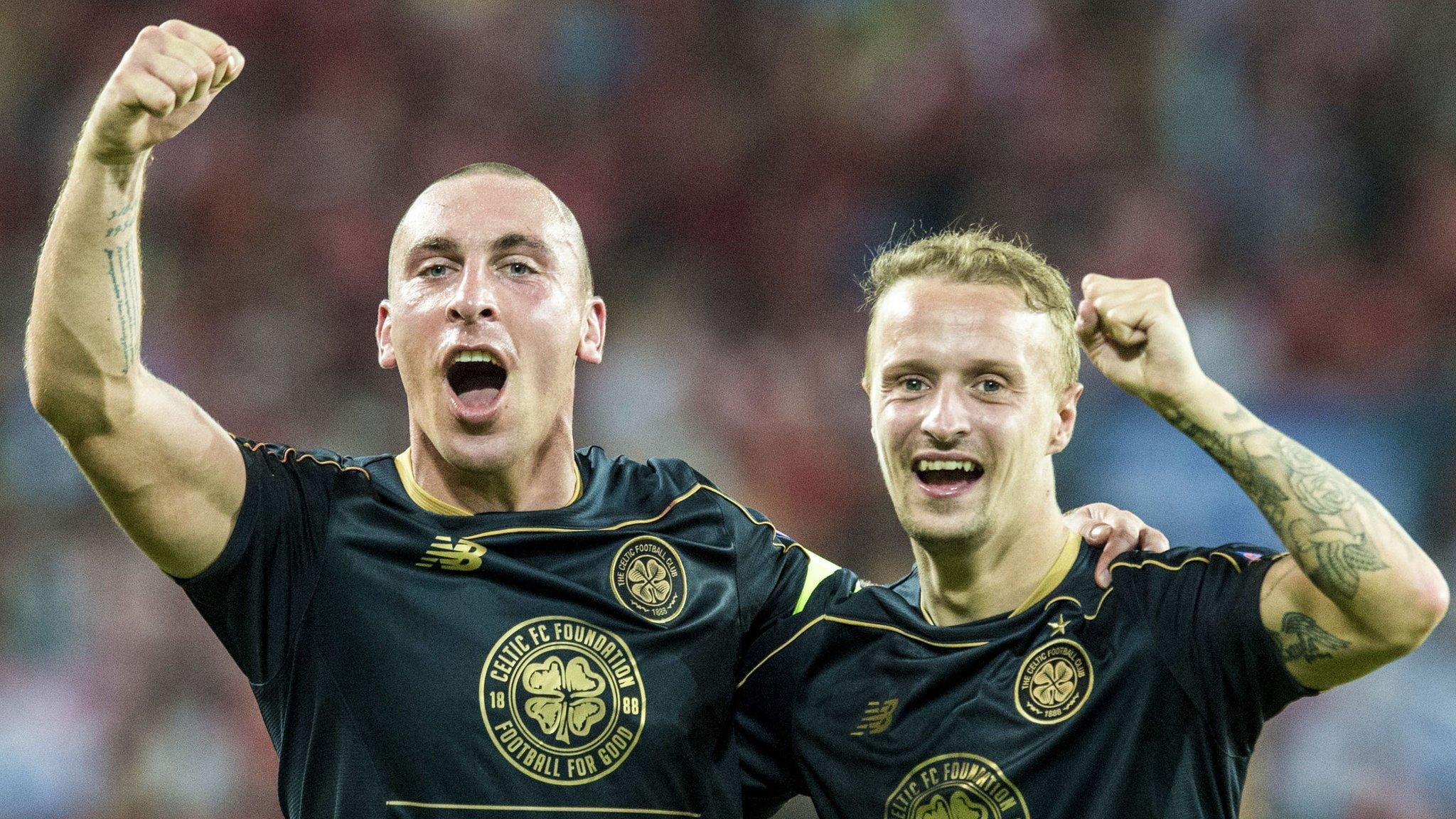
- Published23 August 2016
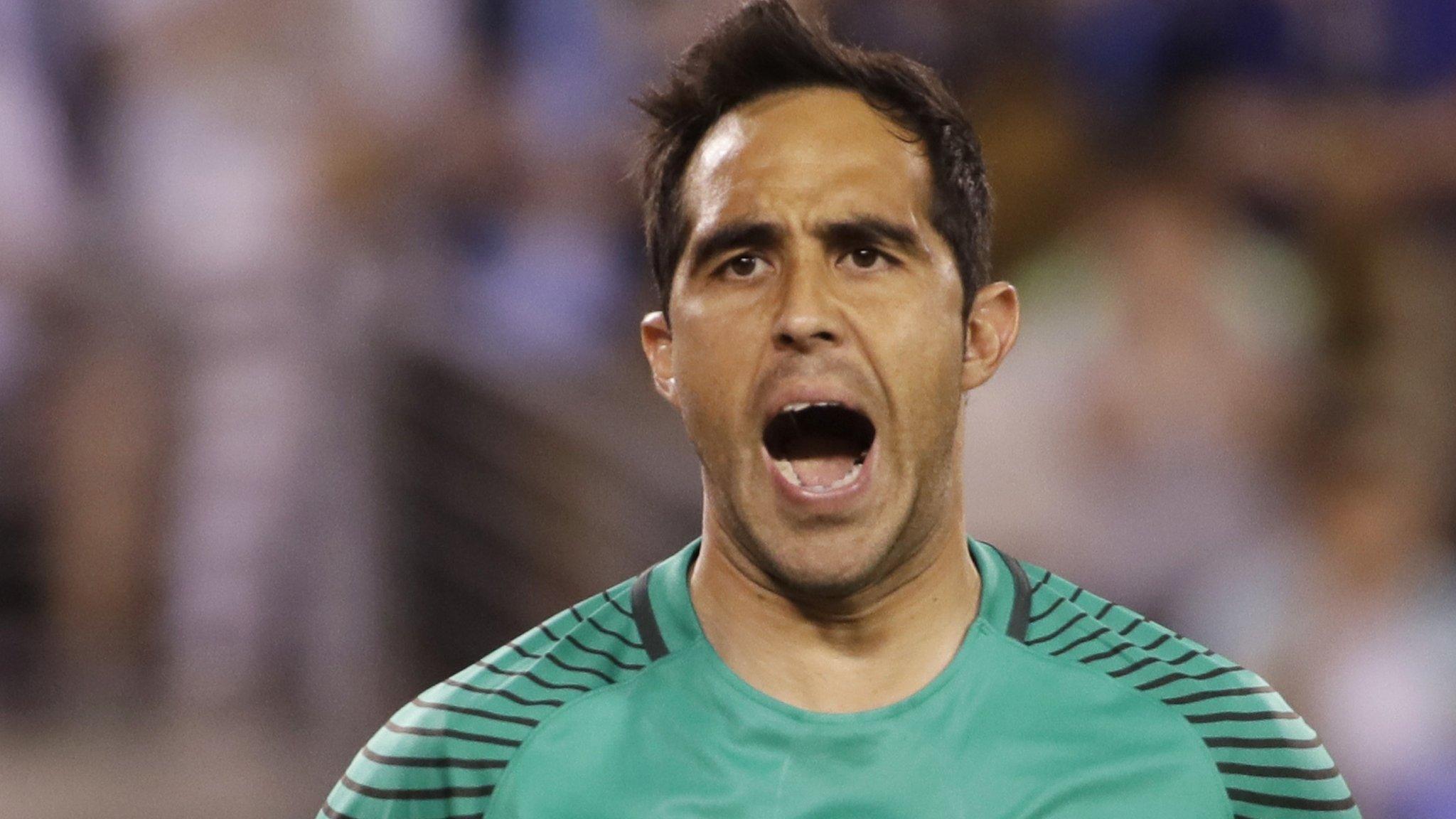
- Published23 August 2016
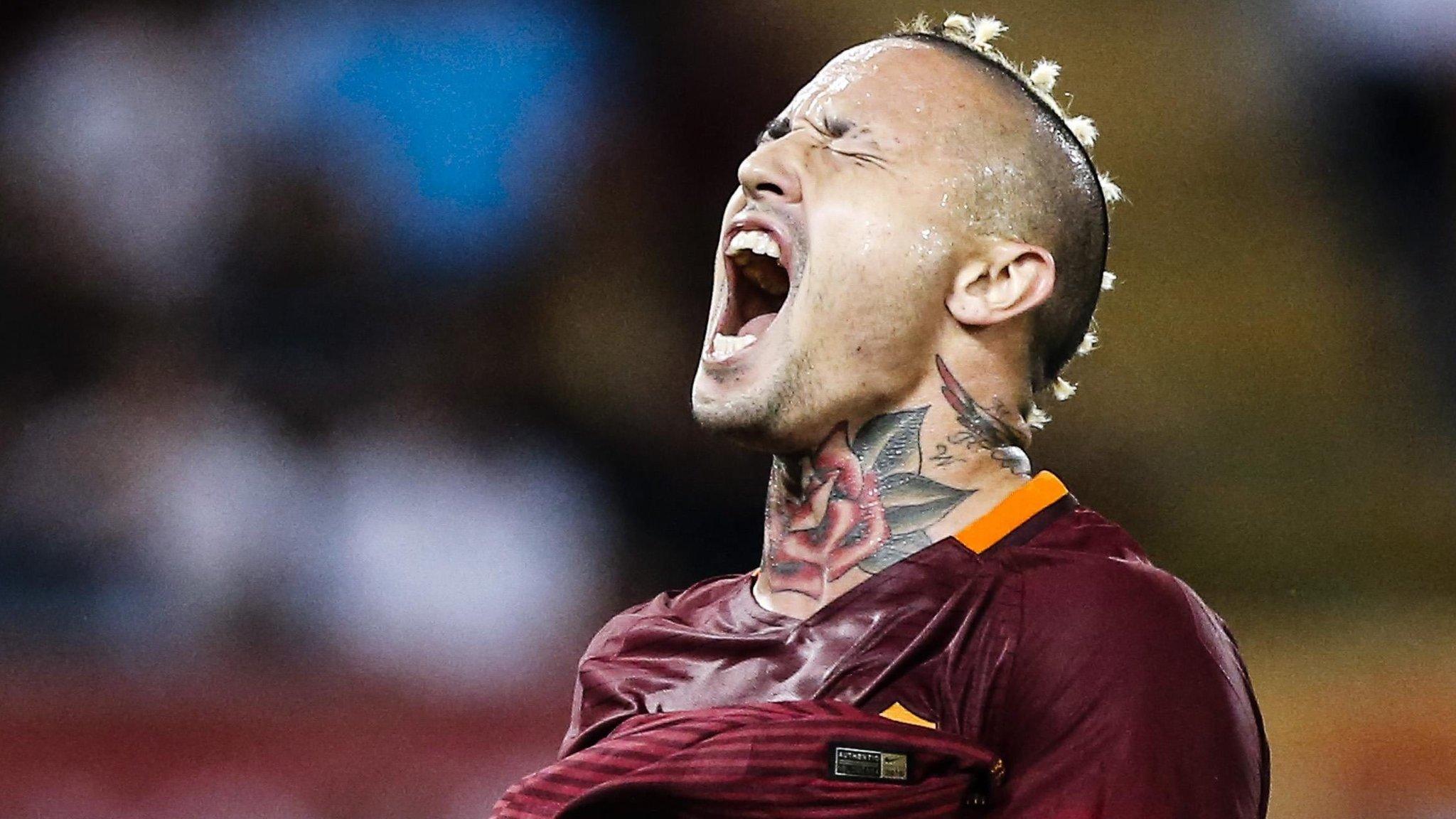
- Published14 January 2018
- Published7 June 2019
